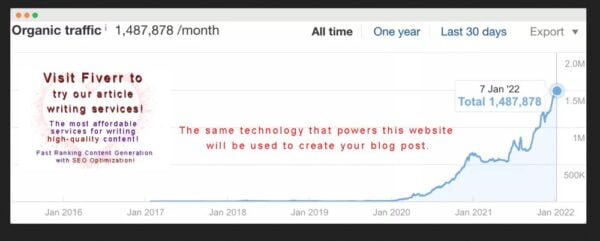Mastering Content Writing for Blogs: A Comprehensive Guide
Content writing for blogs is an art form that combines creativity with strategy. Whether you’re a business owner, a freelance writer, or a hobbyist looking to share your passion, understanding how to craft compelling blog content is essential. In this article, we’ll dive into the world of blog content writing, exploring techniques, strategies, and tips to help you create engaging and effective blog posts.

Understanding the Importance of Blog Content Writing
![]()
Before we delve into the how-to’s, let’s first understand why blog content writing is so important. Blogs serve as a platform for individuals and businesses to share information, insights, and stories. They can help establish authority in a particular field, drive traffic to a website, and engage with a target audience. Quality blog content can also improve search engine rankings, making it easier for potential readers to find your site.
The Anatomy of a Great Blog Post
![]()
Writing blog content that resonates with readers involves more than just putting words on a page. A great blog post has several key components:
- An Attention-Grabbing Headline: The title of your post is the first thing readers see. It should be intriguing and promise value to encourage clicks.
- A Compelling Introduction: The opening paragraphs should hook the reader and clearly state what the post will cover.
- Informative and Engaging Body: The core of your post should deliver on the promises made in the headline and introduction, providing valuable information in an engaging way.
- A Strong Conclusion: Summarize the key points and leave the reader with a call-to-action or something to ponder.
Strategies for Effective Blog Content Writing
![]()
Now that we know what makes a great blog post, let’s explore some strategies to enhance your blogging content writing:
Know Your Audience
Understanding who you’re writing for is crucial. Tailor your content to the interests, needs, and language of your target audience. This will make your writing more relatable and engaging.
Choose Topics Wisely
Select topics that are relevant to your audience and offer value. Whether you’re solving a problem, providing new information, or entertaining, your content should be something readers find useful or interesting.
Optimize for Search Engines
While writing for your audience, also keep search engines in mind. Use keywords naturally throughout your post, including in the title, headings, and body. This can help improve your blog’s visibility online.
Write with Personality
Your blog is a chance to showcase your unique voice. Don’t be afraid to let your personality shine through in your writing. This can help you stand out and build a loyal readership.
Edit and Proofread
Quality matters. Always edit and proofread your work to ensure it’s free of errors and flows well. This not only improves readability but also establishes credibility.
Blog Content Writing Service: When to Consider Professional Help
![]()
Sometimes, you might need a little extra help with your blog content writing. This is where a blog content writing service comes in. These services offer professional writers who can create high-quality, SEO-friendly content for your blog. Consider using a service if:
- You lack the time to write consistently.
- You want to ensure your content is professionally written and edited.
- You’re looking to scale your content production without sacrificing quality.
Case Studies and Examples of Successful Blogging Content Writing
![]()
Let’s look at some real-world examples of successful content writing for blogs:
- Case Study 1: A fashion blogger increased their traffic by 200% by focusing on SEO-friendly content that targeted specific fashion-related queries.
- Case Study 2: A small business blog started featuring customer success stories, which led to a 150% increase in engagement and a boost in conversions.
- Example: A tech blog uses a mix of in-depth tutorials, product reviews, and industry news to cater to a diverse audience, resulting in a broad and loyal readership.
Tools and Resources for Blog Content Writers
![]()
There are numerous tools and resources available to help with writing blog content. Here are a few to consider:
- Keyword Research Tools: Tools like Google Keyword Planner or SEMrush can help you find the right keywords to target.
- Content Planning Software: Trello or Asana can help you organize your content calendar and keep track of deadlines.
- Grammar Checkers: Grammarly or Hemingway Editor can assist in catching errors and improving the readability of your posts.
Measuring the Success of Your Blog Content
![]()
Once your content is published, it’s important to track its performance. Use analytics tools to measure metrics such as page views, time on page, bounce rate, and social shares. This data can inform future content decisions and help you refine your content writing for blogs.
Frequently Asked Questions
![]()
What is content writing for blogs?
Content writing for blogs is creating written material like articles, posts, and other text-based content specifically for blogs. This involves researching topics, creating engaging content, and tailoring it to the blog’s audience.
How often should I post new content on my blog?
It’s generally recommended to post new content at least once a week. However, the most important factor is consistency, so choose a schedule you can maintain.
How long should my blog posts be?
The ideal length of a blog post depends on the topic and audience, but a general guideline is between 500 and 2000 words. It’s important to cover the topic thoroughly and keep the reader engaged.
How do I choose topics for my blog?
Choose topics that are relevant to your audience’s interests, trending in your industry, or frequently asked questions within your niche. Keyword research can also help you identify popular topics.
How important is SEO for my blog content?
SEO is very important for increasing visibility and driving organic traffic to your blog. Use relevant keywords, meta descriptions, and headers to improve your content’s SEO.
Can I use images in my blog posts?
Yes, images can enhance your blog posts by breaking up text and illustrating points. Ensure you have the right to use the images or use royalty-free stock photos.
What’s the best way to promote my blog content?
Promote your blog content through social media, email newsletters, and by engaging with other bloggers and forums in your niche. You can also use paid advertising if your budget allows.
How can I measure the success of my blog content?
Measure success through metrics like page views, time spent on page, comments, shares, and the growth of your subscriber list. You can use tools like Google Analytics to track these.
Should I allow guest posts on my blog?
Allowing guest posts can provide fresh perspectives and content to your blog. Just ensure that the content is high quality and relevant to your audience.
How can I improve my writing skills for blog content?
Practice writing regularly, read widely in your niche, and study other successful blogs. Consider taking writing courses or workshops to enhance your skills.
Conclusion: Key Takeaways for Blog Content Writing Success
![]()
In conclusion, writing blog content that engages and converts requires a mix of creativity, strategy, and attention to detail. Remember to:
- Understand your audience and write for them.
- Create content that is valuable, informative, and engaging.
- Optimize your posts for search engines without compromising quality.
- Consider using a blog content writing service if you need professional assistance.
- Use tools and resources to aid in content creation and measure success.
By following these guidelines and continually refining your approach, you can master the art of blog content writing and create posts that resonate with your readers and achieve your blogging goals.


